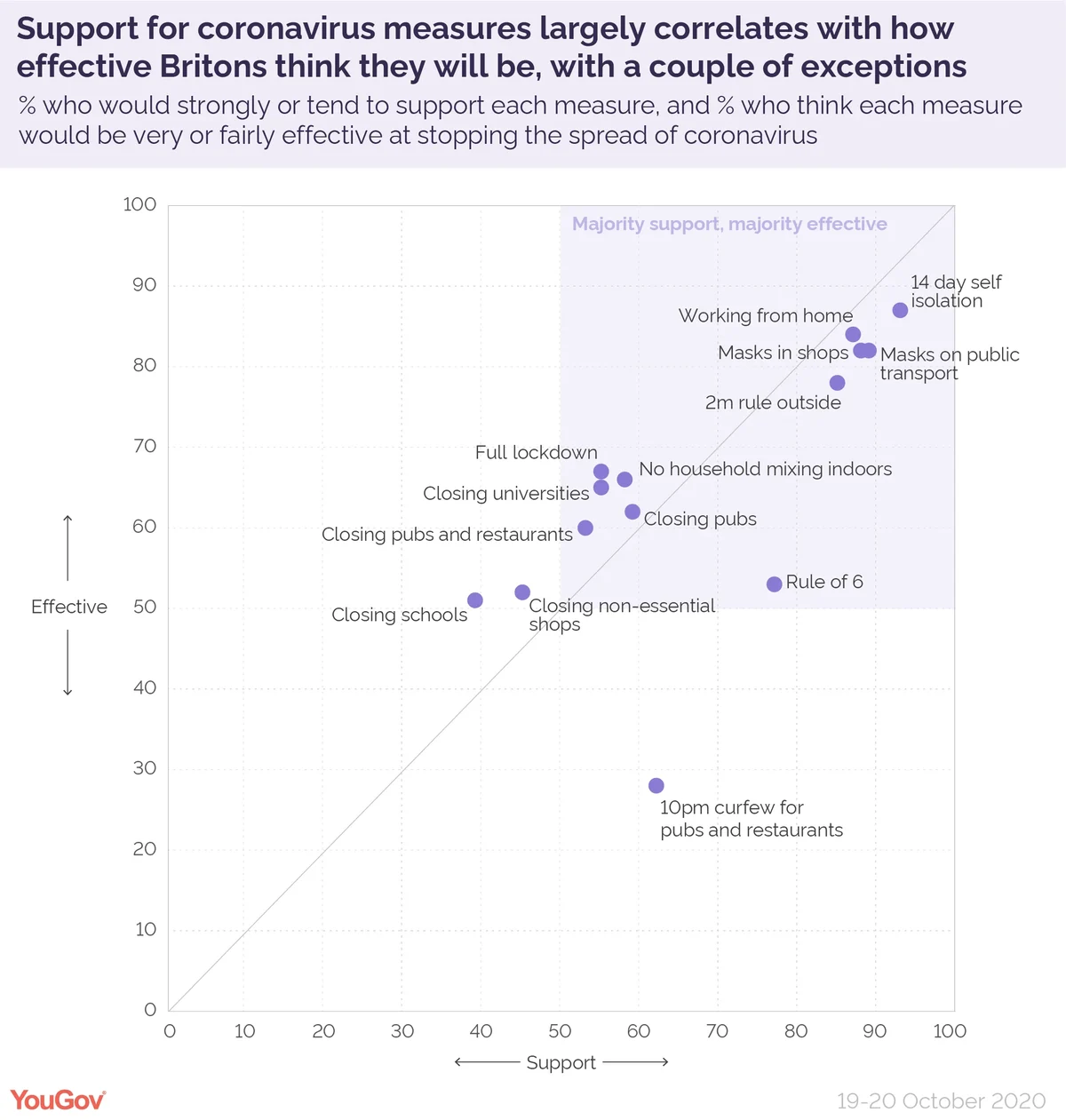There's high public support for most actions to combat the disease, but does this match how effective Britons think they are?
Throughout the coronavirus crisis Britons have consistently been in favour of measures to curb the spread of COVID-19. Almost everyone (93%) supported the initial lockdown back in March and our latest polling on the topic paints a similar picture, with all but two of the 14 current and possible measures we asked about getting majority support amongst the public.
However, not all are seen as useful ways to tackle the coronavirus crisis. Three in five (62%) back the recently introduced curfew for pubs and restaurants, but just 28% actually think it is an effective way to reduce the spread of the virus. Our research finds that there is also strong support for the rule of six – with more than three quarters (77%) backing it – but far fewer (53%) think it is an effective measure.

This difference in support and effectiveness could be due to two reasons. Firstly, when the 10pm curfew was introduced as part of a package of new measures, 45% said these policies didn’t go far enough. Therefore, some of this support could be among people who are in favour of stricter rules in general and would actually like them to go further.
Secondly, these measures could be seen as “easy wins” for many of the public as they don’t impact on their everyday lives. In late September we found that 54% of the public hadn’t gone to the pub anyway since they re-opened in the summer, so a 10pm curfew is not an infringement on their day to day activities.
One area we tested didn’t receive majority backing – closing schools. While 51% think shutting schools would be an effective way to tackle the virus, just 39% support doing so. Our research shows that there is also a sizable gap between support and effectiveness for closing universities (55% support, 65% effective) and a full lockdown where people can only leave their homes for essential shopping, exercise and work (55% support, 67% effective).
Many of the policies, however, enjoy similar levels of both support and effectiveness. These policies seem to form two distinct clusters. The higher cluster – with measures supported by at least 85% and seen as effective by 78% – consists entirely of measures that individuals can take themselves: self-isolation, working from home, social distancing, and mask wearing.
The lower cluster – with measures supported by at 39-59% and seen as effective by 51-67% – consists almost exclusively of measures imposed by the government that affect all of society, namely a full lockdown and the respective closures of pubs, restaurants, schools, universities, and non-essential shops. The outlier in this group is the ban on household mixing indoors, which is arguably more of an individual level action.









